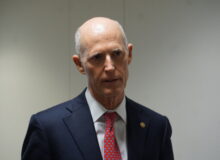Does God intend for us to suffer, or does he at least countenance the suffering? Are faith and science naturally at odds? In terms of our daily lives, what good does God do for us (other than promising a distant heaven for which we can hope while we struggle on Earth)?
Hello. Since my last posts at this site, during its temporary dormancy, I have had published more than a dozen columns on faith — including ones that address those crucial, and common, questions listed above. Rather than post them all individually, I post links to each of them below, with a simple summary or tiny excerpt from each. (For once, I list them not chronologically, but instead with the ones I think most will nwo find most interesting at the top).
Will this presidential election be the most important in American history?
Please enjoy. And know that God is good.
New studies show God gives us coping tools (Sept. 3): “[P]eople who attend Sunday worship not only feel better during the time they are in church, but they are happier throughout the week than non-churchgoers.”
The problem of evil: A different explanation (Sept. 17): For discussion purposes only — absolutely not as a statement of doctrine, but as a hypothetical — consider the possibility that while God is omniscient (all-knowing) and all-loving, He might not actually be omnipotent. What if He is only multi-potent?
When belief fades, civilization may, too (Aug. 27): Catholic writer George Weigel posited that for reasons both religious and secular, the decline in the practices and understandings of Christianity leads to cultural decline as well.
Modern science is not opposed to faith (Sept. 24): The likelihood of God’s existence is advanced, not diminished, by modern science – particularly particle physics, quantum mechanics and neuroscience.
No, ‘purity culture’ is not harmful…. (July 30): A discussion of the hopeful promise of the good and loving things God will do for us if we open ourselves more to him than to our short-term, earthly desires.
Jesus promised to bring division and discord… [Why?] (Aug. 13): The familial divisions Christ brings are not ones He imposes; they are ones produced by our differing responses to His imperatives.
Why love is an answer to cowardice (Oct. 1): A reflection on the verse in which St. Paul wrote that “God did not give us a spirit of cowardice, but rather a spirit of power and of love and of self-discipline.”
No ‘cafeteria Christians,’ please (Oct. 15): Be wary of picking and choosing among doctrines to suit one’s own desires.
Christians owe fealty to no earthly leader…. (Nov. 20): The United States gets it right, by the way: Here, our leaders are elected to serve us, not rule us, while we try to lead lives that prepare us for salvific grace rather than depending on other humans to step in and set our lives aright.
[There’s no real] ‘political split’ between Catholics and Evangelicals …. (Sept. 10): A poli-sci professor prematurely asserted that the Trump candidacy was driving apart a once-strong coalition between conservative Catholics and Evangelicals.
The pope and Lutheran bishop sign ‘common journey of reconciliation’ (Nov. 6): Two major church leaders renew recognition of the legitimacy of baptisms across denominational lines.
Pope Francis and King Abdullah try to heal the rifts of the ages (Oct. 29): The Pope helps celebrate the Protestant reformation. (!) A direct-line descendant of the prophet Muhammad helps pay for restoration of Christ’s tomb. (!)
David Duke and the “religious right” in Louisiana (Oct. 22): How the Christian Coalition worked 25 years ago to stop the political rise of an infamous neo-Nazi.
AND, FINALLY LAST SUNDAY’S COLUMN:
Lies Americans believe about our material blessings (Nov. 27): Most Americans, according to a new survey, were grateful this Thanksgiving not for wealth or material things but for family, friends, health, and freedom. This is how it should be. … But just because we have a proper perspective on gratitude doesn’t mean that we should not also be thankful for material circumstances as good or better than any people in any land in history. Most Americans, unfortunately, suffer under the delusion that times right now are unusually tough and that the economic circumstances of median Americans have declined in recent decades. This is nonsense – and statistics prove it.







